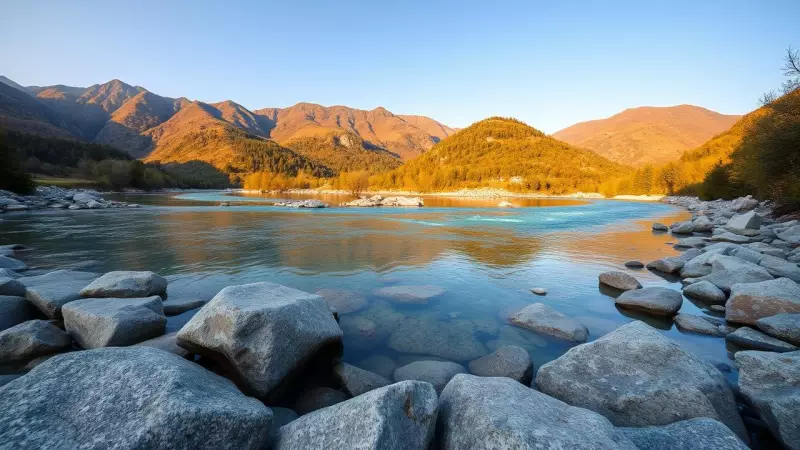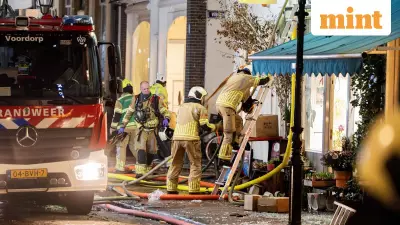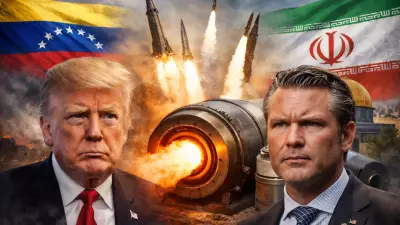
In a landmark victory for environmental conservation, Albania has established Europe's first wild river national park along the magnificent Vjosa River. This achievement represents years of dedicated work by activists, scientists, and local communities who recognized the ecological treasure flowing through their lands.
A River That Knows No Borders
The Vjosa River, known as Aoos in Greece, begins its journey in the Pindus Mountains of Greece and travels northwest through both Greek and Albanian territories before emptying into the Adriatic Sea. The creation of the Vjosa Wild River National Park in March 2023 marks a significant milestone in European conservation efforts.
Rivers have a unique ability to unite people across political boundaries, according to Ulrich Eichelmann of RiverWatch, an Austria-based organization dedicated to river protection. "There's a connectivity in rivers because everybody along a river is part of the same river-basin ecosystem," Eichelmann emphasized.
The European eel perfectly illustrates this interconnectedness. These remarkable creatures enter the Vjosa at its delta in the Adriatic Sea, travel upstream to the river's source in Greece, spend several years there, then migrate back downstream to the sea—completely unaware of national borders.
Cross-Border Cooperation in the Balkans
While Albania celebrated its national park achievement, an equally impressive transnational movement was gaining momentum across the Balkans. The Save the Blue Heart of Europe campaign represents groundbreaking cross-border environmental cooperation in a region historically divided by political tensions.
From Austria to the Gulf of Corinth, numerous citizen groups across Bosnia-Herzegovina, Croatia, and North Macedonia have joined forces with NGOs within the Blue Heart campaign to protect their waterways from destructive development projects.
RiverWatch is now supporting Greek and Albanian activists in their efforts to expand the wild river park to include the section of Vjosa flowing through Greek territory. "Both Greeks and Albanians will benefit," Eichelmann stated, adding that "the river unites these people around the vision of a transboundary national park that covers the entire river basin."
Environmental Peacemaking in Action
The benefits of these cross-border environmental initiatives extend far beyond conservation. Transnational cooperation actively counteracts nationalist tensions, as demonstrated by several successful projects across Europe.
In 2022, Germans, Czechs, and Poles united to address an environmental crisis when a toxic algae bloom killed 360 tons of fish in the Oder River, which flows through all three countries. The transnational alliance Time for the Oder now brings together 28 smaller groups from these nations, creating platforms for cooperation and communication.
This alliance has achieved significant victories, including court rulings that blocked destructive upstream construction and the restoration of natural floodplains that now provide enhanced flood protection.
Another remarkable example comes from the borderlands of Greece, Albania, and North Macedonia, where the transboundary coalition PrespaNet links conservationists from all three countries sharing the Prespa lakes. These mountain lakes represent one of the wild region's gems and host the world's largest Dalmatian pelican colony.
Myrsini Malakou, a biologist with the Society for the Protection of Prespa, recognized early that the basin had "three countries, two lakes, one future." Through PrespaNet, she brought together Albanian and North Macedonian NGOs committed to conservation, demonstrating how environmental activism serves as a force for environmental peacemaking.
Despite the roar of nationalist politics that characterized the Balkans in the 1990s, PrespaNet successfully engaged scientists, local administrators, farmers, fishers, and long-time residents in collaborative conservation efforts.
The movement continues to grow. In the border regions of Bosnia and Serbia, citizens from both countries became activists when international corporations began exploratory drilling for lithium. When Bosnians learned about mining plans in their territory, Serbian activists immediately offered support, creating another bridge across historical divisions.
As Malakou beautifully summarized, "For a long time, Prespa was the only place in the troubled Balkans where states and people built bridges to safeguard natural and cultural values. Cooperation and reconnection were born from the environment. Nature is what brought us together."





